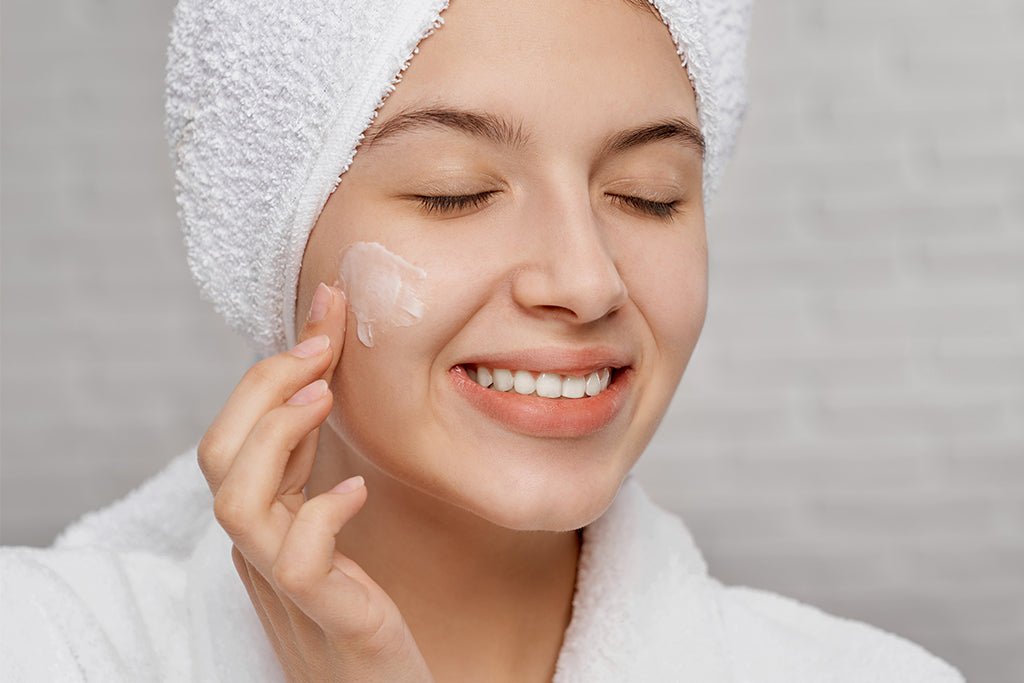In This Article
Introduction
In our quest to enjoy the great outdoors, safeguarding our skin from the harmful effects of the sun's ultraviolet (UV) rays is crucial. Two common products that help protect our skin are sunblock and sunscreen. While they do bear some similarities, they do have some significant differences between them. In this blog, we'll delve into the difference between sunscreen and sunblock, exploring their unique characteristics, mode of action, and how to select the most suitable option for your skin.
Understanding Sunscreen
Sunscreen is a topical product designed to shield the skin from the sun's harmful UV rays. It contains organic (chemical) or inorganic (physical) filters, or a combination of both, to provide protection. Organic filters, such as avobenzone and octinoxate, work by absorbing UV radiation and converting it into heat energy. On the other hand, inorganic filters like titanium dioxide and zinc oxide act as a physical barrier, reflecting and scattering UV rays away from the skin.
One significant advantage of sunscreen is its ease of application. It typically comes in a lotion,cream, gel, or spray form, making it easy to spread evenly over the skin. Sunscreens also offer a range of SPF (sun protection factor) values, indicating the level of protection against UVB rays. However, it is important to note that sunscreen may require reapplication, especially after sweating or swimming, as its effectiveness diminishes over time.
Understanding Sunblock
Sunblock, also known as physical or mineral sunscreen, works differently from sunscreen.Instead of relying on chemical filters, sunblock forms a physical barrier on the skin's surface,blocking both UVA and UVB rays. The active ingredients in sunblock, titanium dioxide, and zincoxide, act as reflective agents, bouncing off the sun's rays and preventing them from penetrating the skin.
One of the primary advantages of sunblock is its immediate effectiveness. As soon as it is applied, it starts providing protection without the need to wait for chemical filters to become active. Additionally, sunblock is less likely to cause skin irritation, making it a suitable choice for those with sensitive skin or prone to allergies.
Choosing the Right Protection

When selecting between sunscreen and sunblock, it is crucial to consider your individual needs and preferences before making your decision:
- Skin Type: If you have sensitive or reactive skin, sunblock may be a better option due to its gentle formulation and reduced risk of irritation.
- Immediate Protection: If you need instant sun protection, sunblock is preferable, as it works as soon as it is applied.
- Cosmetics and Ease of Use: Sunscreens are often formulated to be lightweight and non-greasy, making them easier to apply and suitable for everyday use. Sunblocks, on the other hand, tend to have a thicker consistency and may leave a white cast on the skin.
- Water Resistance: If you plan to swim or engage in water activities, opt for a water-resistant sunscreen or sunblock to ensure prolonged protection.
Try SkinQ’s Sun Protect Ultra Light Non Sticky Sunscreen Gel, it’s a broad spectrum sunscreen gel with the goodness of sun protection and Vitamin C. Vitamin C brightens your skin and SPF 40 sunscreen prevents UV damage making it the preferred sunscreen for face and neck. It’s a non-sticky sunscreen with an ultra-light formula, making it the best sun cream for women and men This sunscreen was voted Top 5 sunscreens of India by Vogue Beauty!
Must Read: What SPF is best suited for Indian skin?
Conclusion
In the eternal debate of sunscreen vs sunblock, both products offer effective means of shielding our skin from the sun's harmful UV rays. Sunscreen, with its range of SPF values and ease of application, suits many individuals' needs. On the other hand, sunblock, with its physical barrier and immediate protection, may be more suitable for those with sensitive skin or a desire for instant sun protection. Ultimately, selecting the right product depends on factors such as skin type, desired level of protection, and personal preferences. Regardless of your choice, remember that consistent use of sun protection is essential to maintain healthy and radiant skin.

